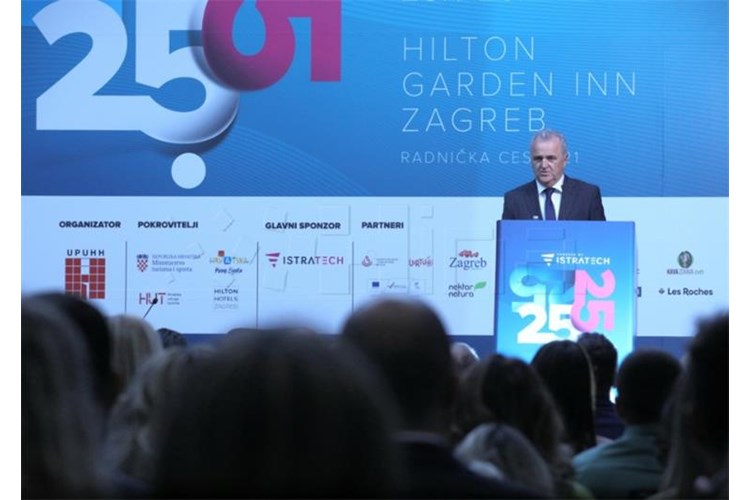This year, Croatia has issued 42,000 work permits to foreigners for employment in the tourism industry, which was 10,000 more than in 2022, and the labour shortage is the main challenge for the sector, it was said in Zagreb on Tuesday at the 25th congress of hoteliers.
Addressing the event, the head of the Croatian Association of Tourism, Veljko Ostojić, said that "facing a very complex and demanding situation with a plethora of different challenges, hoteliers and the whole tourism sector, in cooperation with the public sector, have successfully done their job this year."
"We are optimistic about the period to come. The financial effects are important, investments and the matter of maritime domain and land for tourist purposes are important, too and we are going to hold talks with the competent ministries and we are also going to discuss work permits. We expect headway in those issues," Ostojić said, adding that people should have realistic expectations and be aware that it is not always possible to issue the necessary permits and licences in fast track procedures.
Ostojić and Željko Kukurin, the chairman of the board of the Valamar Rivera hotel group and the leader of the association of employers in Croatia's hotel industry (UPUHH), said that hoteliers strongly support the new law on tourism and that they expect the new legislation to resolve many dilemmas both at the local and national levels.
In this context they pointed out the poor structure of accommodation in the tourism sector, and said that Craotia fares the worst in the Mediterranean in that segment.
A low share of hotel beds in total capacity
It is not viable to have a low share of hotel beds in the total capacity for the accommodation of guests, and on top of that, we have high seasonality, all of which undermines Croatia's relatively good starting position to develop sustainable tourism, said Kukurin.
Despite a considerable rise in the number of four- and five-star hotels in recent years, the occupancy capacities in family-run Bed and Breakfast establishments, guesthouses, and self-catering holiday homes have been rising at a higher rate, and their share in the total capacity is above hotels. On the other hand, they are well below hotels in terms of the duration of the season, quality of services and investments, Kukurin said, adding that this required a lot of efforts to cope with.
€400m invested in tourism industry in 2023, Croatia gets 14 new hotels, three campsites
Tourism Minister Nikolina Brnjac said that investments in the tourism sector reached over €400 million in 2023, and as a result, 14 hotels, three campsites and several new facilities in tourist resorts have been built.
The president of the Croatian National Tourist Board (HTZ), Kristjan Staničić, said that indicators for 2024 hint at one more successful year after 2023, which is on a par with the pre-pandemic 2019, perceived as the most successful in the national tourism sector.
(Hina/FaH)
News


